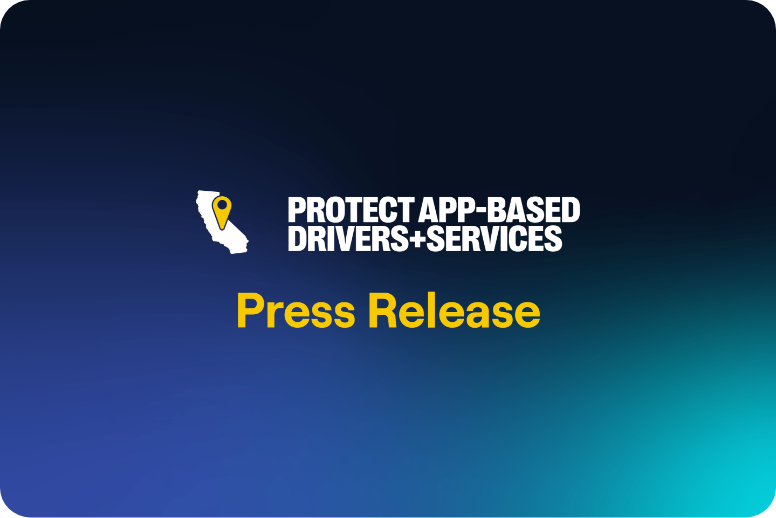By Anthony T. Caso
California voters overwhelmingly voted to pass Proposition 22 to overturn the botched policy in Assembly Bill 5. But now, a judge is overturning the will of the people on the basis that the bill did what the people wanted: It fully overturned Assembly Bill 5.
The trial judge who made this decision, Judge Frank Roesch, struck down the proposition because he doesn’t believe that overturning Assembly Bill 5 is a single issue–thus violating the state’s “single subject” rule for ballot measures. It doesn’t take three years of law school to see why this is foolish.
Assembly Bill 5 reclassified independent contractor drivers for Uber, Lyft, and DoorDash into employees. This was done for the sole purpose of allowing workers to join unions because independent contractors are not allowed to unionize under federal law. The SEIU, one of the nation’s largest unions, supported Assembly Bill 5 (and later sued to overturn Proposition 22).
Assembly Bill 5 was a disaster from the start. The bill, authored by Assemblymember Lorena Gonzalez-Fletcher, D-San Diego, was so poorly written that it had to be immediately amended to exempt a host of workers such as some freelance writers, photographers, musicians, and others. The true target of the law, the so-called “gig-economy” companies like Uber, Lyft, and DoorDash, were not exempted and were required to convert all of their independent contractor drivers into employees.
Proposition 22 was written to restore the flexibility drivers enjoyed as independent contractors by overturning Assembly Bill 5.
Fifty-nine percent of voters voted in favor of Proposition 22 because it fully overturned Assembly Bill 5. That was the single issue voters wanted to achieve.
But Roesch struck the proposition down, in part, because it violated the “single-issue” principle which requires ballot measures to focus on one issue. The judge claimed that Proposition 22 violated this principle because voters chose to classify drivers as independent contractors and require the state to get approval from voters before authorizing “collective bargaining” for the independent contractor drivers in the future. But these are not two separate issues.
Independent contractors do not have union representation – that was the whole point behind Assembly Bill 5. That law converted independent contractors into employees so that unions could organize the employees into collective bargaining units. And the whole point of Proposition 22 was to reverse the changes made by Assembly Bill 5. The restriction on the Legislature’s power to cancel the people’s vote was part and parcel of the proposal before the voters when they overwhelmingly approved Proposition 22.
Proposition 22 was written comprehensively. The people did not want Assembly Bill 5 and Proposition 22 ensured that the bill was fully overturned.
The real problem with the court’s ruling is that it means that future initiatives cannot deal with a subject in a comprehensive fashion. It means that the courts will force voters to solve problems on a piecemeal basis – even when that problem is a single piece of legislation with which the people happen to disagree.
In addition to a trial court’s misconceptions about the “single-issue” principle, he also misinterpreted the constitution of California. The ruling makes the people subordinate to the Legislature. It puts drastic limits on the people’s right of initiative. It converts the Legislature into rulers and makes the people mere subjects.
The trial court’s ruling has been appealed. Hopefully, the appellate courts reviewing this decision will spend some time with the California Constitution. Article II, section 2 tells us that “all political power is inherent in the people.” Power does not reside in the government. It is the people who are the sovereigns. The Legislature serves us, not the other way around.
Anthony T. Caso is a clinical professor of law at Chapman University’s Fowler School of Law and a senior legal fellow at the Claremont Institute.
Read the original article in full

The Latest News

Opinion
I’m an Instacart driver: California Supreme Court must protect my job
By Stephanie Whitfield It may sound dramatic to say that app-based driving saved my life, [...] Read more
News
As Prop. 22 heads to California Supreme Court, support doesn’t break along ideological lines
By Bob Egelko Proposition 22, the 2020 ballot initiative sponsored by Uber and Lyft that [...] Read more
